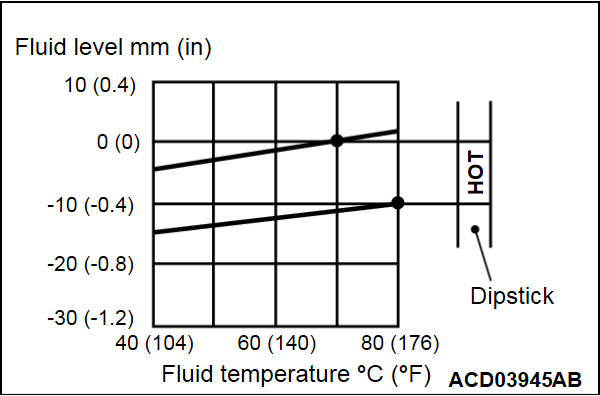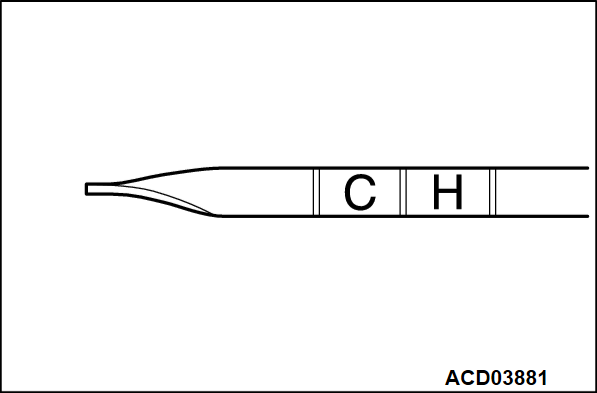TRANSMISSION FLUID CHECK
1. Drive the vehicle until the transmission fluid is warmed up to the normal operating temperature 70 to 80°C (158 to 176°F).
| note | Use scan tool to measure the transmission fluid temperature. |
| note | When a certain amount of time is required to warm up the transmission fluid to the normal operating temperature 70 to 80°C (158 to 176°F), check the fluid level referring to the characteristics chart. |
2. Park the vehicle on a level surface.
3. Move the selector lever to every position to fill the torque converter and the hydraulic circuit with the transmission fluid, and then move the selector lever to "P" or "N" range.
4. Wipe clean the area around the dipstick, and then remove the dipstick to check the condition of the transmission fluid.
| note | If the transmission fluid smells burnt or is excessively deteriorated or dirty, the transmission fluid is contaminated with particles of the metal bushings and friction material. In these cases, the transaxle must be overhauled. |
5. Check that the transmission fluid level is within the "HOT" area on the dipstick. If the fluid level is low, add the transmission fluid to the "HOT" level.
Transmission fluid: Mitsubishi Motors Genuine CVTF-J4
| note | When the transmission fluid level is low, the oil pump sucks air together with the transmission fluid, and produces air bubbles in the hydraulic circuit. The air bubbles in the hydraulic circuit decreases the hydraulic pressure, causing the delayed gearshift or slippage of the belt, clutch, and brake. When the transmission fluid level is too high, the fluid is stirred by the gear and foams up, and the problems similar to those when the transmission fluid level is low will occur. In either case, air bubbles cause the overheat and oxidation of the transmission fluid, which prevents normal operation of the valve, clutch, and brake. Beside, when the transmission fluid is foamy, it flows out of the transmission vent hole. This may be taken as the fluid leakage by mistake. |
6. Insert the dipstick securely.
![[Previous]](../../../buttons/fprev.png)
![[Next]](../../../buttons/fnext.png)

